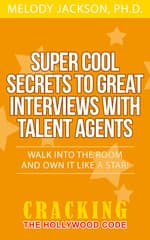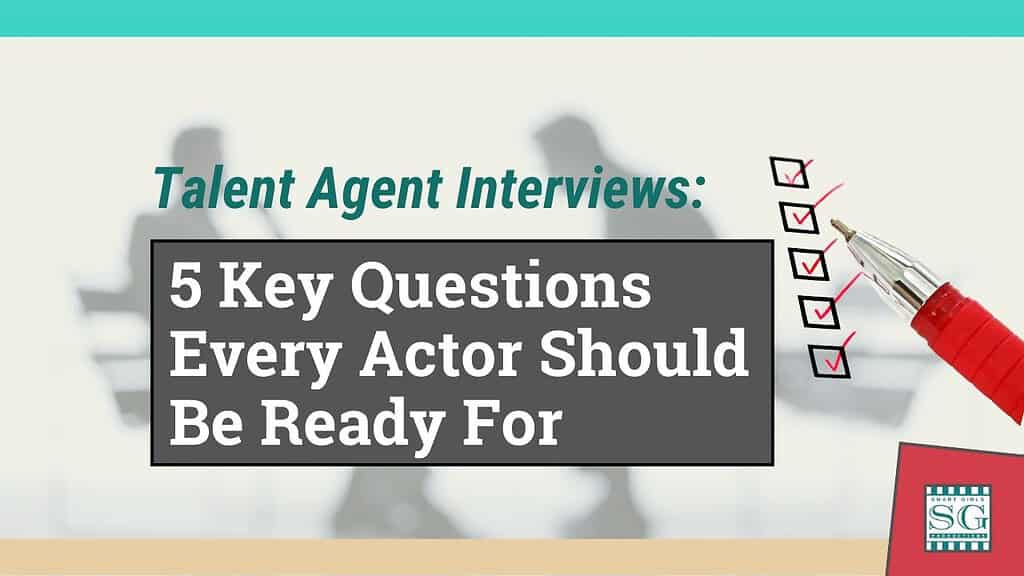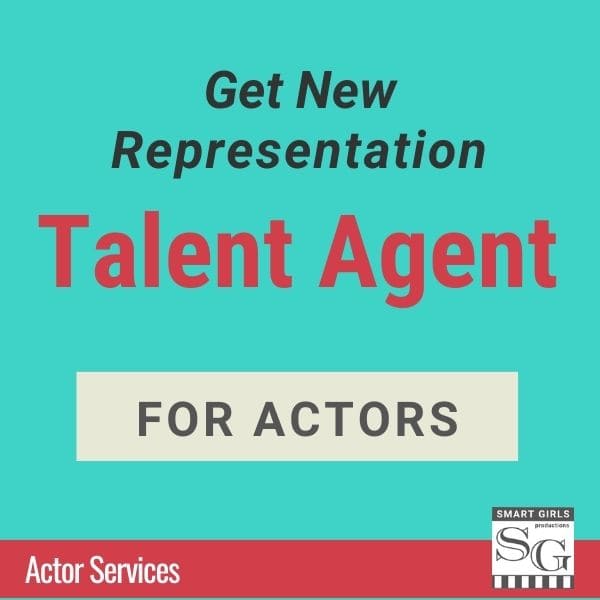One of the common mistakes actors make in interviews with talent agents is not being prepared or not knowing what they should and shouldn’t ask the agent (or manager) they’re interviewing with.
When you aren’t sure about what to do in an agent meeting, you might find yourself just sitting passively and answering the agents questions nicely without showing any of your personality.
Or on the other hand, you could ask the agent the wrong questions in the interview and give the impression you’ll be difficult to work with or that you’re so much of a newbie that you don’t even know that certain questions have negative connotations.
Bottomline… it’s good to know what the good questions are to ask the agent and what the bad questions are to avoid.
To get you on the right track, here are five questions that are fair game.
These questions will help you get the information you need while at the same time engaging in the conversation and connecting with the agent or manager.
As you ask them, be light and friendly to keep the space warm and in rapport with the agent.
1. What age range do you see me being right for?
Before you approach agents for your film and television career, you should already have a good sense of what your age range is. In fact, you should know your age range before you get your headshots taken so your headshots represent you correctly.
In an agent interview, the agent may ask you your age or your age range (at least what you think), so before you go in, give it some thought.
Keep in mind that as a film and TV actor, your age range will be more limited than for theatre. Go with about a 5-year span, or up to 8 or 10 years if you’re over 38. Don’t go more than a year over your actual age if you go over.
By the way, in case you don’t get a chance to read this whole article right now, you can get individual one-on-one training for an agent meeting with me (Melody) in our Agent Meeting Role Play sessions.
These sessions are lots of fun, and when you leave my office you will not only be more confident about having your meeting with an agent, but you will be excited to go try out what you learn on an agent.
2. What kind of roles will you submit me for?
As with the first question, you definitely should have a good idea of your casting. Your headshots should reflect the kinds of roles you would be right for. You may not be completely clear what your casting is, but be ready to answer the question if they ask you first or if they turn the question back to you.
Whether they ask you or not, it’s fair to ask them what roles they would submit you for. This is important because you want them to submit you for what you think you’re right for, not something completely off track.
It’s great to get as many auditions for acting as you can, but if you feel you’re not even the right type, it will be depressing and you’ll end up being upset that you wasted your time.
 3. How do you like your clients to keep in touch with you?
3. How do you like your clients to keep in touch with you?
Many talent agents, at least early on in your acting career, don’t want to hear from you very often. Unfortunately, too many times, actors bug their agents and don’t have anything of substance to say when they call.
That annoys the talent agents and makes them not want to hear from the actors they represent. It’s not personal, but too many actors waste their time on small talk.
To get around this, ask the agent how they want you to keep in touch with them at the meeting.
If you don’t like their answers, you can always discuss it with them and see if you can come to some other agreement. OR, you can just not sign with them.
4. How do you feel about me promoting myself with your agency name on my submissions?
You would think that any agent would be happy that their actors are trying to do something for their careers, and many are. But funny enough, it’s not always that way.
Talent agents and personal managers will surprise you a bit. Sometimes they just don’t want you to put their name on things they don’t authorize. But they may also be trying to control their “brand” and wanting to make sure they’re seen in the way they want to be seen.
Just as an actor has a “brand,” so do agencies and managers. Bottomline, be sure you ask them how they feel about it.
5. As an agent helping actors in their careers, what do you typically do to try to get auditions for a client you believe in? OR What is your approach to developing a client? OR do you focus mostly on submitting or do you do other things, too?
This one could be a bit confronting for an agent, so be careful when you ask it. The main thing you’re trying to find out is whether they only submit your picture to the casting directors for auditions or if they pick up the phone and call to pitch you.
Most of the time, smaller agencies will submit their acting talent, but they don’t have much time to make calls. As an actor starting out, that’s okay, you need to get with someone to get the ball rolling.
But if you have Co-Star and higher credits and you want to be in films, you need a talent agent who picks up the phone and pitches you to Hollywood.
[themify_quote]If you have Co-Star and higher credits and you want to be in films, you need a talent agent who picks up the phone and pitches you to the casting directors. If your agent isn’t doing that, you might want to think about getting a new agent or adding a personal manager to your team.[/themify_quote]
To be sure the agents you consider for representation are right for you, make sure they can answer at least four out of these five questions in a way that you accept, as well as any others that are important to you.
When you ask them, however, but don’t put the talent agent on the spot or they won’t like you anyway! You have to be able to schmooze and make them feel comfortable as well.
You’ll find many agents and managers, and producers, too, don’t like to be confronted. So early on in your career, take it easy, but still try to get some understanding of what they will do for you.
If you would like more in-depth ideas on the having your best interviews with agents, check out my 29-page ebook Top Secrets of Great Interviews With Agents. The price will go up soon!
 For more hot tips on what to ask and what to avoid, along with in-depth ideas on the having your best interviews with agents, check out my 29-page guidebook Top Secrets of Great Interviews With Agents. To go even a step further, you may want to consider a one-on-one Agent Meeting Role Play.
For more hot tips on what to ask and what to avoid, along with in-depth ideas on the having your best interviews with agents, check out my 29-page guidebook Top Secrets of Great Interviews With Agents. To go even a step further, you may want to consider a one-on-one Agent Meeting Role Play.
[themify_button text=”#ffffff” color=”#32CD32″ size=”xlarge” target=”_blank” link=”https://hollywoodbschool.com/?edd_action=add_to_cart&download_id=1073″]Add to Cart[/themify_button]
If you want to learn hot tips and secrets to doing a great Agent Interview, grab this ebook while it’s on sale!
Just click the Big Green ADD TO CART Button above and it will take you to a secure checkout over at our sibling company Hollywood Business School (HBS).
Just click the button and you’ll get a chance to review it all before paying.
Click this Big Green Get Started Button now.
[themify_button text=”#ffffff” color=”#32CD32″ size=”xlarge” target=”_blank” link=”https://hollywoodbschool.com/?edd_action=add_to_cart&download_id=1073″]Add to Cart[/themify_button]


